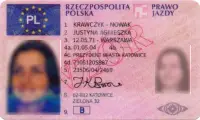Polish is a West Slavic language, that falls under the Indo-European group of languages. Polish evolved from Proto-Slavic languages. The Polish language has continued to evolve up to present time. This is so much so that it may be hard for current day Polish speakers to understand Polish texts that were written 100 years ago. The Prussians and Russian who conquered Poland between 1795 to 1918 tried to eradicate the Polish language, but their efforts were not successful. The Poles were able to keep their language intact.
Polish is the official language that is spoken in Poland. It is also used as a second language in other countries such as Kazakhstan, Ukraine, Lithuania, Russia and Belarus. This came about due to border changes after World War 2, which resulted in a lot of Poles being left outside their motherland country. In addition, there are Polish emigrants who live all over the world. They can be found in Brazil, Canada, the US, UK and Ireland. There are 50 million Polish speakers worldwide. Out of this, 14 to 17 million Poles live outside Poland. There are a number of Polish dialects. This includes the Silesia, Malopolska, Kashubia, Mazovia, Podhale and Wielkopolska dialects, which are some of the major Polish dialects. The differences in the dialects are not that major. The differences are based on the regional pronunciation of words and a few vocabulary differences. Some dialects like Kashubian are considered to be independent languages. The Polish language is closely related to Czech, Slovak and Upper and Lower Sorbian languages.
Polski is the native name for Polish. Literary Polish is based on the Gniezno, Cracow and Warsaw dialects, though there is some dispute among linguists concerning this. Polish is not an easy language to master. Foreigners may find the pronunciation of words to be tongue twisting and challenging. The Germanization of Poland during the 19th century resulted in the adoption of German loan words into Polish. There are also loan words from French, English, Latin and Russia in Polish. This came about due to historical contacts with the languages as a result of political or religious reasons.


